-
Golden Triangle by Train: Te Huia to TaurangaOver half of New Zealand’s population lives in the Golden Triangle, and it is one of the fastest-growing parts of the country — it makes sense to have a modern, safe and efficient train service between Auckland, Waikato and the Bay of Plenty. Te Huia is already showing how passenger rail can help people get to work, study, healthcare, and visit whānau without relying on long, expensive, and often dangerous road trips. Investing in passenger rail eases congestion, improves road safety, reduces emissions and supports regional growth and tourism. With major rail infrastructure already in place and the City Rail Link opening in 2026, now is the time to build on Te Huia’s foundations — not walk away from them.3,459 of 4,000 SignaturesCreated by The Future is Rail
-
Stand Against Harassment in the Name of Culture and FaithAcross Aotearoa, vulnerable communities including migrants, refugees, LGBTQIA+ people, faith groups, and tangata whenua are experiencing harm, fear, and exclusion caused by extremist groups or individuals who misuse faith, culture, or moral authority to intimidate. Misuse of haka, tikanga Māori, and religious belief as tools of intimidation violates our shared values, diminishes mana, and harms the safety and dignity of all. We call on the Government to 1. Recognise organised harassment as a serious threat and respond decisively 2. Protect public and community spaces including schools, libraries, places of worship, and community services 3. Ensure consequences for leaders and groups who repeatedly target and harass communities 4. Affirm the right of all communities to exist, gather, and practise their culture, community, and faith safely Aotearoa is strongest when difference is met with care, respect, and collective responsibility. We urge Parliament to act decisively to protect communities, uphold mana, and create a future grounded in dignity, safety, and collective care.3,370 of 4,000 SignaturesCreated by Toitū Te Aroha

-
Stop early labelling in primary school reports (2026)From 2026, primary schools will report children’s learning using national labels: Emerging · Developing · Consolidating · Proficient · Exceeding For children aged 5–7, this approach is developmentally inappropriate. Learning at this age develops unevenly, at different rates for different children, and early labels often reflect developmental readiness and support needs rather than true understanding or potential. This matters because: • Early learning is non-linear Children aged 4–7 show wide, normal variation in attention, language, memory, and self-regulation. Progress does not happen in neat stages. • The labels describe support levels, not learning ability Terms like Emerging and Developing explicitly reference the amount of support a child needs, which risks equating support needs with lower ability. • Children within the normal developmental range are labelled Many children will sit in Developing or Consolidating simply because their learning is still forming, not because they are behind. • “Developing” and “Consolidating” are easily read as deficit For whānau, these labels are easily interpreted as “not meeting expectations”, even when development is typical. • Neurodivergent children are particularly disadvantaged These children may understand concepts but struggle to demonstrate learning in standardised ways due to differences in communication, processing speed, regulation, or anxiety. • Wellbeing and confidence are affected Early labelling can undermine confidence, increase stress, and discourage children from taking learning risks. • This approach has caused harm before New Zealand previously moved away from national benchmarking systems after evidence showed they narrowed learning and negatively affected wellbeing. Early learning should focus on growth, relationships, and support, not categorising children on a national scale.541 of 600 SignaturesCreated by Kate Muir
-
A Call for Safe Air and Masking in Healthcare SettingsWe, the general public, and the undersigned clinicians, scientists, and health professionals, call for the urgent reinstatement of basic airborne-infection-control measures—clean indoor air and appropriate airborne respiratory protection —in all healthcare settings across Aotearoa, New Zealand. These are the simplest and most effective tools to prevent avoidable illness, disability, and death among both patients and staff. Since the withdrawal of SARS-CoV-2 COVID-19 mitigations, hospitals and clinics have faced relentless outbreaks of respiratory viruses. Emergency departments are routinely operating beyond safe capacity, and senior doctors have compared recent winters to “mass-casualty situations.” [1] Aotearoa New Zealand’s “vax-and-relax” strategy has failed to protect our people. 1 in 5 children infected with COVID develop long-term symptoms. [2] Nurses and doctors have among the highest global rates of Long COVID [3], and ongoing staff illness contributes to understaffing, treatment delays, and preventable deaths. There are currently no adequate systems in place to support long COVID and post-viral disease in New Zealand, and instead, patients are met with medical gaslighting and a lack of medical and social support. [4] COVID-19 causes vascular damage and damage to every organ in the body, including the brain and heart, due to its ability to target endothelial tissues. [5] It wreaks havoc on the immune system, leading to an impaired response to future immune assaults. This has led to the rise of more severe responses to other illnesses, worsening of current conditions, outbreaks of recurrent infections (including fungal and bacterial), thus increasing pressure on emergency medical services. [6] Excuses such as "immunity debt” are not scientifically substantiated; in fact, all viruses damage rather than enhance the immune system, for example, both SARS-CoV-2 and influenza at least triple the risk of heart attacks. [7] The effects of viruses have been missed, overlooked, and minimised, leading to a culture of indifference and ignorance surrounding the impacts of catching regular viruses, including in healthcare settings and a reluctance to change following the ever-growing body of research that shows viruses can cause more significant harm than first thought. We strongly believe that every person in Aotearoa New Zealand has a right to access safe healthcare without the risk of catching a deadly or disabling virus. This falls under our legal right to health, including access to timely and appropriate healthcare. Additionally, every healthcare worker has the right to a safe workplace and working conditions that support them to stay home when sick. [8] Treating airborne infection as a matter of “personal responsibility” violates these rights and undermines public trust. Critically, for the best prevention possible, fit-tested respirator masks (N95/FFP2 and N100/FFP3) must become the standard in all health care settings. Surgical masks are proven not to be effective against aerosolised respiratory viruses. [9] According to the British Occupational Hygiene Society (BOHS), it is a breach of health and safety standards to claim that surgical masks protect against inhaled hazards. Like sterile surgical gloves or seatbelts, respirators and ventilation are proven life-saving norms —not restrictions on freedom, but tools that enable freedom through safety. We respectfully urge the Ministry of Health Manatū Hauora, Te Whatu Ora Health New Zealand and the government and other regulatory bodies in charge of these regulations to implement the following evidence-based protections: 1. Use proven mitigations to prevent the spread of respiratory and other aerosol viruses at all times. 2. The return of mandatory protections for aerosolised viruses such as SARS-CoV-2 at all times, not just during a known ward outbreak, in all clinical spaces. Including visitors, staff and patients (where medically possible). 3. Respirators, i.e N95's or equivalent, not surgical masks, are to be used as the default mask practice (this is because surgical masks are not PPE for respiratory viruses.) 4. Paid sick leave and safer staffing levels so infected staff can stay home until they are no longer infectious and are well enough to safely perform their duties. 5. Return to regular COVID testing in emergency departments and wards. Including the numbers of patients and staff catching viruses like COVID-19 in hospitals, and nationally, the number of Long Covid cases and associated pathologies. 6. Mechanical ventilation and HEPA filtration in all patient-care spaces, operated at all times rather than reactively and ensure safe CO2 levels in each space. 7. Education on the importance of masking, different types of masks, their effectiveness and the proven damaging effects of COVID-19 infections. This information needs to be shared regularly with the public. 8. Increase funding, clinical care and community support for Long Covid and associated pathologies such as ME/CFS, POTS, Cognitive issues and more. (Please read the full letter for all details and recommendations) Health is a collective responsibility. Allowing uncontrolled viral spread threatens not only individual lives but the sustainability of the entire health system. By restoring clean-air standards and airborne viral protection, Aotearoa can once again lead the world in compassionate, science-based public health. A final note to anyone in healthcare, you do not need to wait for another mandate to start masking with the best tools we have to protect yourself and patients and the community today. Thank you! From Mask Up NZ in association with Aotearoa Covid Action. This petition is dedicated to Alice Wong, Leslie Lee III, and anyone who has lost their lives or had their health impacted by viral spread in a health care setting. (contact: [email protected]) References [1] https://www.stuff.co.nz/nz-news/360816342/ [2] https://doi.org/10.1111/jpc.70104 [3] https://doi.org/10.1093/occmed/kqae113 [4] https://www.rnz.co.nz/news/national/577991/ [5] https://doi.org/10.7759/cureus.9540 [6] https://whn.global/scientific/the-long-term-immune-effects-of-covid/ [7] https://doi.org/10.1161/JAHA.125.042670 [8] https://www.legislation.govt.nz/act/public/2015/0070/latest/DLM5976660.html [9] https://www.thelancet.com/journals/ebiom/article/PIIS2352-3964(24)00192-0/fulltext1,392 of 2,000 SignaturesCreated by Mask Up NZ
-
Reverse the decision to deny transgender and takatāpui young people access to puberty blockersDear Minister Simeon Brown We write to you as transgender and takatāpui young people of Aotearoa New Zealand to ask you to reconsider your decision to ban the use of puberty blockers (gonadotropin-releasing hormone analogues) by transgender young people. To be transgender or takatāpui is a taonga. To deny our young people access to life-saving medication on the basis of an imported culture war is cruel and abhorrent. Trans young people are some of our most at-risk youth. Not because of who they are, but because of how our society treats them for something they have no control over. Denying our rangatahi an effective medication that gives them the time to discover who they are is needlessly cruel. According to Counting Ourselves 2022, 77% of trans people experience high or very high psychological distress, compared to just 12% of the general population. When compared to the fact that 95% of trans youth have a positive impact on their mental health from the use of puberty blockers, how could such a vital medical intervention be ignored? This decision is an infringement on human rights and medical autonomy, as stated by Te Kāhui Tika Tangata The Human Rights Commission. Denying access to essential healthcare for trans and takatāpui youth is going to cause unnecessary harm and distress to not just young people but to their whanau as well. The fact that it is only our gender diverse youth that are denied this care, and not the general population, is clear discrimination designed to target our most vulnerable. We urge you to reconsider your decision and put our young people’s health ahead of politics. Sincerely Lauren Craig & Ngahuru Autumn Brown9,372 of 10,000 SignaturesCreated by Lauren Craig & Ngahuru Brown
-
Deliver on your promise: A new single Redress Agency for survivors of abuse in care!We all want Aotearoa New Zealand to be a place where everyone can thrive. Certainly a place where survivors of abuse in State Care and in the Care of Faith-based Institutions can thrive. We know that what has happened to the estimated 250,000 vulnerable adults, children, and babies is a “national disgrace” according to Judge Coral Shaw, former Chair of the Abuse in Care Royal Commision of Inquiry. The Abuse in Care Royal Commission of Inquiry’s Final Report, Whanaketia: Through pain and trauma, from darkness to light, was very clear: “"As an immediate priority, the government and faith-based institutions should implement the 95 recommendations in the Inquiry’s interim report on redress, He Purapura Ora, he Māra Tipu: From Redress to Puretumu Torowhānui (2021), together with the recommendations of the design group, subject to any further recommendations made in this report." [1]” The Interim Report, He Purapura Ora, he Māra Tipu from Redress to Puretumu Torowhānui, has 95 Holistic Recommendations to improve the current redress systems (Ministry of Social Development, Ministry of Health, Oranga Tamariki - Ministry for Children and Ministry of Education) for survivors of abuse in care [2]. Summary of the redress recommendations are: • expansion of oranga, or wellbeing, services and support services for survivors and their whānau; • increased financial payments for survivors; • training for those working with survivors; • enactment of a right to be free from abuse in care, as well as a duty to protect this right; • an exception to accident compensation legislation; • improvements to the handling of survivors’ requests for records, including as few redactions of survivors’ records as possible; and, • a review of record-creation and record-keeping practices. On the 12th of November 2024, the Prime Minister, RT Hon. Christopher Luxon, finally and formally apologized to survivors of abuse in State and Faith-based care. He apologized to survivors for the horrific and harrowing abuse they have experienced while in care, he apologized to their family and whānau and he outlined some steps that the Government will take to address the Final Report of the Inquiry. He said: “"But I want to assure you it is our intention to have a new single redress system operating next year." [3]” On the 9th of May 2025, the Lead Coordination Minister, Hon. Erica Stanford announced changes to the redress system for abuse in care survivors. She announced: • Increasing the average redress payments for new claims from $19,180 to $30,000; • Providing for higher payments for the survivors who experienced the most egregious abuse; • Providing “top up” payments of 50% to survivors who have already settled claims to ensure consistency with increased payments for new claims; • Introducing a common payments framework so that survivors receive the same financial redress for similar experiences of abuse, regardless of where in state care that abuse occurred; • Increase system capacity to process claims from 1,350 to 2,150 per year from 2027 to reduce wait times for current claimants; • Implementing a seamless service so that survivors with claims with multiple agencies have those claims managed by one point of contact; • Introducing a single-entry point for survivors wanting to register new claims; • Introducing an independent review for people who are unhappy with their redress offer; and • Funding for redress agencies to provide survivors with access to supports and services. She said: ““I acknowledge that a key recommendation of both the Royal Commission and the Redress Design Group was for a new independent redress entity. “The Government was faced with a difficult choice: do we spend more time and money on setting up a new scheme, or do we provide more to survivors now through the current redress process? “For Budget 25 we have prioritised improving the current system as quickly as possible for survivors and investing in changes that have a direct impact for them." [4]” To date, the Government has only implemented 28 of the 135 recommendations from the Abuse in Care Inquiry that relate to the Government. [6] These reports from the inquiry shed light on the harrowing and horrific experiences that survivors faced while in the care of the state and faith-based institutions, and emphasise the profound impact that abuse has had on survivors’ lives. Now is the time for action: for people across Aotearoa to come together and be part of the process that ensures that survivors in Aotearoa can thrive. By signing this petition, you are standing up for the rights of survivors and sending a clear message to the Crown: They have a duty of care to survivors, and a duty to implement a new single redress agency and implement all of the recommendations from the Abuse in Care Royal Commission of Inquiry. Together, let's ensure that survivors are supported. Join us in this crucial fight by signing the petition today and spreading the word to your friends, family, and community. Together, we can make a difference and safeguard the future of care and help survivors of abuse in State and Faith-based Care to thrive. _________ References: 1 - https://www.abuseincare.org.nz/reports/whanaketia 2 - https://www.abuseincare.org.nz/reports/from-redress-to-puretumu/ 3 - https://www.1news.co.nz/2024/11/12/full-text-of-prime-ministers-apology-for-abuse-in-care/ 4 - https://www.beehive.govt.nz/release/budget-2025-invests-care-system-and-improving-redress-survivors-abuse-state-care 5 - https://www.abuseinquiryresponse.govt.nz/assets/Uploads/Proactive-release/Putahi-te-mauri-he-wai-ora-e-Redress-design-proposals-1.pdf 6 - https://www.abuseinquiryresponse.govt.nz/about-us/official-information/information-releases/cabinet-papers-and-minutes/proactive-release-of-decisions-about-the-governments-response1,188 of 2,000 SignaturesCreated by Ihorangi Reweti Peters

-
No More Risk, Safe Ways For Families To Stay In TouchWe want a New Zealand where families of people in custody can stay connected safely, without fear, and where tamariki (children) continue to have meaningful contact with their parents. A world where incarceration does not unnecessarily harm children or whānau, and where rehabilitation is supported by strong family bonds. Currently, families often must provide their personal residential addresses to maintain contact with loved ones in prison. This creates significant safety and privacy risks, especially for caregivers and children. Many families are reluctant to communicate regularly because of these risks, leaving children isolated from their parent, and weakening family support structures that are proven to help reduce reoffending. This situation disproportionately affects vulnerable families, creating inequity and stress. For children, inconsistent or unsafe contact with a parent can have lasting emotional and social impacts, including anxiety, disrupted attachment, and increased risk of poor outcomes in education and wellbeing. Research consistently shows that maintaining strong family connections during incarceration: • Reduces recidivism: children and families can be a protective factor supporting rehabilitation.[1] • Supports tamariki wellbeing: consistent contact with a parent fosters emotional stability and resilience.[2,3] • Promotes fairness and equity: no family should have to risk safety to stay in touch. Currently, the lack of a secure, monitored communication platform prevents New Zealand from realizing these benefits. Families must choose between safety and contact, an impossible choice that can harm both parent and child. Implementing a secure electronic communication system: • Allows families to communicate safely without sharing private addresses. • Provides a child-focused option, letting tamariki exchange messages, drawings, or school updates safely. • Supports rehabilitation for people in custody by strengthening family bonds. • Reduces stress and safety risks for caregivers, improving overall family wellbeing. This issue needs to be addressed NOW because children are currently missing out on consistent contact with their parents, and families continue to face unnecessary risk. Modern secure communication systems exist internationally and could be adapted for Aotearoa, making this solution both feasible and timely.[4] References & Supporting Facts: [1] Reducing Re-offending (Corrections NZ): https://www.corrections.govt.nz/resources/strategic_reports/corrections_strategic_plans/creating_lasting_change_2011_-_2016_YR3/reducing_re-offending [2] Murray, J., & Murray, L. (2010). Parental incarceration, attachment and child outcomes.https://www.tandfonline.com/doi/abs/10.1080/14751790903416889 [3] Bowlby, J. (1988). A Secure Base: Parent-Child Attachment and Healthy Human Development.https://www.increaseproject.eu/images/DOWNLOADS/IO2/HU/CURR_M4-A13_Bowlby_(EN-only)_20170920_HU_final.pdf [4]Secure Video Calls with Prisoners - GOV.UK: https://www.gov.uk/guidance/visit-a-prisoner-using-a-video-call63 of 100 SignaturesCreated by Tania Topia
-
Say YES to “Access” #YesToAccessNZ | Words shape worldsWhy this matters ““Commit to replacing ‘inclusion’ with ‘access’ on 3 December. Maybe it sticks. Maybe it doesn’t. Maybe it’s the first step toward a more equitable Aotearoa.” Access is a right, not an invite. That’s why. ” 3 December 2025 is International Day of Persons with Disabilities and is the perfect moment to flip the script, start with words, and build the access-first Aotearoa we all deserve. Words shape worlds Did you know? “Inclusion” comes from the Latin includere - in (“into”) + cludere (“to shut, close off”). To include means to be invited into something that was closed to you. You’re still outside - until someone lets you in. Access, from accessus, means “to enter or pass through without barrier.” Not by permission. By right. “Inclusion is margarine. Access is the real butter.” You’ve grown up with “inclusion” as the go-to word. It’s soft. It’s comfortable. It’s on someone else’s terms. There are gatekeepers who “let you in,” “add you in,” “invite you in.” Access is hard - but worth it. It means building places, spaces, and systems from the start—not retrofitting after the fact. It means disabled people aren’t guests. We’re already here and leading. Why Access? In a world where Access is the starting point, not the add-on: • Disabled people live lives of substance, not subsistence • Every space—physical, digital, cultural, political—is designed barrier-free, with disabled people shaping the decisions that affect us • Access is built in: to homes, schools, workplaces, marae, theatres, cities • We are Diversity, not Deficit • We are experts in our own lives, not exceptions to be managed • We inhabit time and space with equity, not as invitees to worlds not made for us • Our identities - not labels - are seen. Our ways of being are sources of insight, not problems to fix This isn’t a dream. It’s the Aotearoa we can build when Access comes first. This isn’t just about ramps and captions Access is multi-dimensional: physical, cultural, emotional, financial, spiritual, intellectual, collective, and individual. Swapping “inclusion” for “access” reframes disability not as a problem to accommodate, but as a matter of rights, design, and justice. “When we say “inclusion,” exclusion still wins. If you can be “included,” you were already excluded. Access, once embedded, cannot be denied. ” Swapping “inclusion” for “access” is more than a language fix. It's an entire mindset shift. What’s the difference? A real life example from what we know - the arts. An 8 - 10 performance season might offer: • 2 sign-language interpreted shows • 1 audio-described show • Wheelchair seating for 4 people per show That’s Inclusion - a few seats at someone else’s table. On their time, Now imagine: • Every performance is NZSL interpreted and audio described • The venue adapts seating in real time for wheelchair users That’s Access - designed with us, led by us, from the very beginning. Inclusion is soft, almost easy, and on someone else's terms, there are decision makers, gatekeepers who 'let' you in, add you in, 'invite' you in. Access is hard, but it means you actively make the effort to build the places, spaces and societies for all from the very start, not accommodate after by invite only. The ask On 3 December 2025, swap “Inclusion” for “Access” in: • Official communications • Policies • Job titles • Public events Witness what shifts. Maybe it sticks. Maybe it doesn’t. But it might just be the spark. We say yes to Access - every day. You can too - even if it’s just for one day. Just like these artists and allies here at this link: Yes to Access. This campaign is disability-led, conceived over two years by disabled artists, researchers and creators with Touch Compass, and supported by allies across Aotearoa. ✊🏽 Words shape worlds. Swap the word. Shift the world. Sign the petition. Share it! #YesToAccessNZ784 of 800 SignaturesCreated by Touch Compass Aotearoa New Zealand

-
NZ Government Sanction Israel NowSince October 2023 the world has witnessed the state of Israel perpetrate innumerable war crimes and human rights violations against the people of Gaza [1], while the violence, repression, and forced displacement of Palestinians in the West Bank and East Jerusalem has escalated [2]. But this violent oppression has been the modus operandi of the decades-long Israeli occupation. The International Court of Justice [3] along with international human rights organisations [4] have repeatedly laid bare the Israeli occupation’s systematic breaches of international law, discriminatory apartheid regime, and abuses of Palestinian human rights. People of conscience in Aotearoa New Zealand have been steadfast in their opposition to Israel’s disregard of fundamental human rights of Palestinians, international legal frameworks and institutions. Across the country we have been standing up for our common humanity and to maintain the integrity of the international law that is meant to keep us all safe. The time of impunity for Israel's occupation and unlawful and dehumanising behaviour must end. We demand that the New Zealand Government impose economic, diplomatic and military sanctions on Israel as a concrete consequence for its breaches of international law and human rights violations. What action can New Zealand take to stand firmly for justice for Palestine? Just as Russia was swiftly and firmly sanctioned for its unlawful invasion and occupation of Ukraine, sanctions should be applied against Israel for its unlawful occupation of Palestine and its innumerable breaches of international law and human rights violations. We believe that sanctions are a just, meaningful and non-violent way for New Zealand to: • stand up for the human rights of Palestinians and all people currently suffering under Israel's illegal occupation and apartheid regime; • take concrete legislative action to back up our statements and the UN Resolutions we have supported to advance justice and peace in Palestine and Israel [5]; • comply with our obligations under international law and commitments under international humanitarian law; and • contribute to maintaining the integrity of the rules-based international order and uphold an independent and moral foreign policy. Standing up for the fundamental human rights of Palestinians is a matter of conscience. By delivering concrete consequences to Israel for its actions, our Government can uphold Aotearoa New Zealand’s commitment to the human rights and dignity of all people, adhere to our responsibilities at international law, and stand on the right side of history. We call on the Prime Minister and Minister of Foreign Affairs to show moral courage and impose sanctions on Israel without delay and until it complies with its obligations under international law. With integrity to the ethical, non-violent and anti-racist principles of the Palestinian-led BDS Movement, the campaign for sanctions against the Israeli occupation of Palestine seeks to ground these principles in the context of Aotearoa. Alongside rejecting all forms of racism including anti-semitism and Islamophobia, a kaupapa which opposes settler colonialism abroad must respect the authority of mana whenua in our respective rohe. Working alongside iwi Māori to honour, defend and advance Te Tiriti o Waitangi is critical to opposing the colonisation of Palestine. The campaign for sanctions is the collective effort of the Palestinian solidarity movement of Aotearoa. References [1] https://www.ohchr.org/en/press-releases/2024/10/un-commission-finds-war-crimes-and-crimes-against-humanity-israeli-attacks; https://news.un.org/en/story/2025/06/1164496 [2] https://news.un.org/en/story/2025/01/1159411; [3] Legal Consequences Arising from the Policies and Practices of Israel in the Occupied Palestinian Territory, including East Jerusalem (Advisory Opinion) [2024]. [4] Report of the Special Rapporteur on the Situation of Human Rights in the Palestinian Territories Occupied Since 1967 (A/HRC/49/87); Amnesty International Israel’s Apartheid Against Palestinians (2002); B’Tselem A regime of Jewish supremacy from the Jordan River to the Mediterranean Sea: This is apartheid (2021); Human Rights Watch A Threshold Crossed Israeli Authorities and the Crimes of Apartheid and Persecution (2021) [5] In September 2024 New Zealand joined 123 other United Nations member states in supporting the United Nations General Assembly Resolution ES-10/24, which affirmed the International Court of Justice’s advisory opinion that Israel’s presence in the Occupied Palestinian Territories (OPT) was unlawful. New Zealand was also the co-sponsor of UNSC Resolution 2334 which affirmed the Israeli settlements in the OPT were unlawful.22,770 of 25,000 SignaturesCreated by Aotearoa for Palestine
-
Save NCEA - Strengthen, Don’t Replace it!There has been little genuine consultation with schools, whānau, or iwi about what is a major change to what and how we assess. Any changes of this scale needs to be informed by the diverse communities that our education system serves. NCEA is not perfect - but it has proven strengths, flexibility, and the ability to serve all learners across diverse pathways, whether academic, vocational, or community-based. Instead of scrapping it, we call on the Government to work alongside educators, students, whānau, and industry to strengthen NCEA through curriculum alignment, a standards review, and genuine co-design. Replacing NCEA risks: • Disadvantaging Māori, Pasifika, neurodivergent learners, migrants, second language learners, and those from lower socio-economic backgrounds. This has been cited in cabinet papers about the proposal as a likely outcome if NCEA is replaced. • Narrowing subject choice, creative course design and limiting pathways for students, whether they are university-bound or not, the proposed changes fail to recognise the benefit of a wide range of subjects and assessment opportunities designed to meet the needs and interests of a wide range of learners. • Reverting to an increased focus on external assessment and exams will have an impact on flexible course design and may negatively impact student wellbeing. We must retain flexibility about how we assess our young people. • A shift to letter grades and percentages which is a regression to outdated, hierarchical models that will likely lead to scaling, bell curves and league tables. • More young people will leave school without a meaningful formal qualification. Retaining Level One NCEA as an optional certificate ensures we can meet the needs of more learners. We believe New Zealand needs an inclusive, future-focused qualification system that values all learners because that is how we build a connected, productive, and ambitious society. That system is NCEA – and it can be strengthened. Replacing it puts all those things at risk. Together, let’s protect NCEA and ensure our qualification system continues to serve every learner in Aotearoa. Please sign this petition so we can make sure NCEA remains and that we focus on strengthening rather than scrapping our national assessment framework. 📢 We also encourage you to have your say by completing the official consultation survey before 15 September 2025: https://www.education.govt.nz/consultation-ncea About Aotearoa Educators Collective Aotearoa Educators Collective is an umbrella collective created to support education thought leaders who share a common interest in promoting progressive ideals in education. The group includes academics, principals and teachers and is not aligned to any political party. https://www.aec.org.nz/7,369 of 8,000 SignaturesCreated by Aotearoa Educators Collective

-
Hands Off NorthTec - Our People, Our Place, Our Future!Education is essential to our community’s future. Everyone who wants to increase knowledge and skills should have the opportunity to learn. NorthTec isn't just a campus, this is the heart of our region, upskilling in tertiary and vocational education in Te Tai Tokerau. NorthTec is Under Threat - Te Tai Tokerau Needs Your Voice! NorthTec was built to serve our people, but now our future is on the line. If proposed cuts go ahead, we risk losing: • Teachers/Kaiako - the heart of our classrooms • Librarians - keeping knowledge alive • The Student Café - a hub for connection • Student Voice - silencing the voices of ākonga • Student Support Services - academic and pastoral • Disability + Health Services • Administration and support services (ICT, Marketing, Enrollments, Registrar, Business) • Academic Programmes - admin coordination are the heart of front line delivery • Regional Campuses must stay open with support services • International Students These proposed cuts will isolate learners, strip away support and threaten the mana of vocational education in Te Tai Tokerau. Sign now, share this amongst whanau and friends and stand with us here at NorthTec/Te Pūkenga. Your signature adds strength to our movement, join us.460 of 500 SignaturesCreated by Student Voice
-
Bring Back long-Distance Passenger Rail to TaranakiRestoring this vital rail link would benefit over 750,000 people by providing an affordable and accessible alternative to air travel and long-distance coaches, which older and disabled passengers often find inaccessible. It would reduce reliance on private vehicles, improving road safety. Reintroducing this service would boost regional economies, uplift tourism in one of New Zealand’s most beautiful and under-served regions, and build a more connected and equitable transport network for all.2,886 of 3,000 SignaturesCreated by Louise James


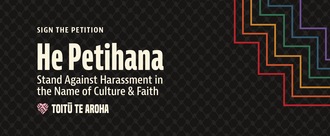

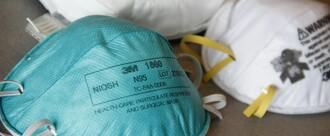


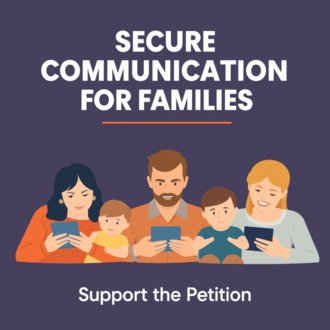
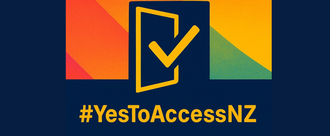
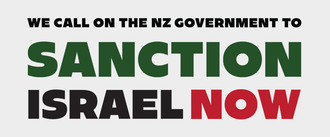
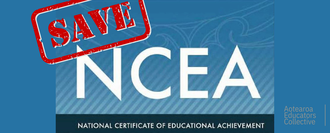
.PNG)
